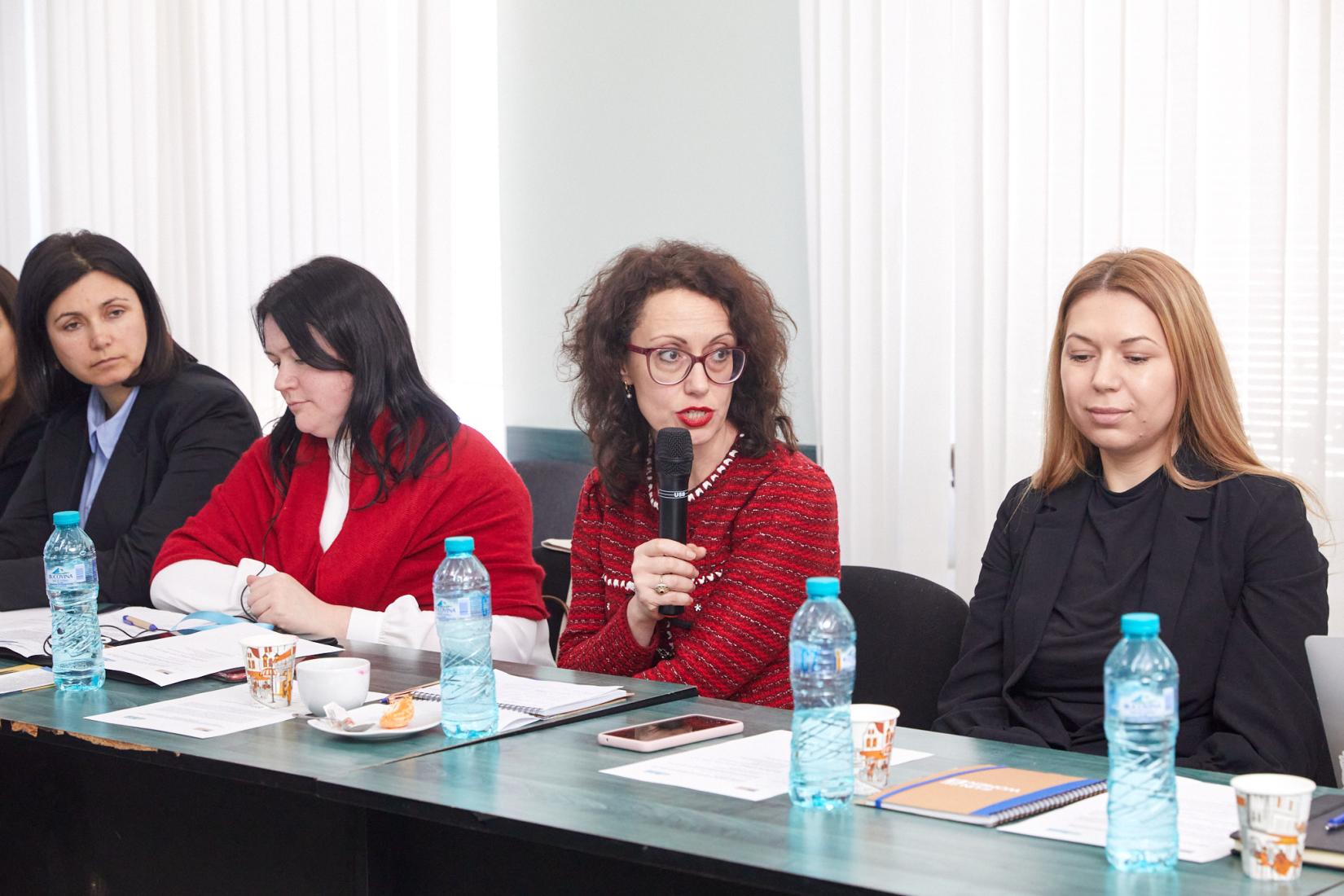Dialogue with the civil society organizations on strengthening their response to support women refugee and women from host communities, survivors of gender-based violence and those at risk
03 March 2023
- UN Women hosted a dialogue in Soroca that brought together representatives of civil society organizations (CSOs), refugee women, women from host communities and the international community which focused on strengthening special services for refugee and community women survivors of violence and those at risk, and the challenges that CSOs face in recognizing and reporting violence.

Opening the dialogue, UN Women Moldova’s Country Representative, Dominika Stojanoska, reflected on the ongoing triple crisis in Moldova. In this context, she emphasized the importance of supporting both refugee and local women survivors of violence, saying “in times of crisis, cases of violence increase. We overcame the covid pandemic but the so-called shadow pandemic of global violence against women still persists”. “I am convinced that these are investments in longer term, to also cover the gap that exists in terms of service provision in Moldova for survivors of gender-based violence”.
Laura Tarbox, representative of the United States Embassy in Moldova, underlined the importance of strengthening services that benefit all survivors of violence. “Our work with UN Women is an important part in the US government partnership with the government and the people of Moldova to address all the current challenges faced in Moldova to build a democratic, prosperous, and secure future. I am confident that Moldova with help from its international partners will continue to support its most vulnerable.”, she said.
The first part of the dialogue focused on the importance of strengthening multi-purpose centers for refugees and Moldovan women victims of GBV and those at risk. During the discussion, CSO representatives talked about the stigma that women survivors of violence face, and how special services are needed in all parts of Moldova. Speaking to this, Adriana Zaslavet from the NGO Memoria said “People who come to our organization find a refuge, they feel like they are heard and understood. We promote their rights, and we are their voice”. “Women and girls and persons who have experienced violence will not come to an organization that does not understand them. They need an enabling environment that allows them to speak freely”, she said.
The dialogue continued with a focus on the challenges that organizations encounter in recognizing and reporting violence. During the discussion, the lack of trust in state institutions was identified as a big challenge in providing assistance to survivors of violence, especially in rural areas. A need for flexible funding to enable organizations to take the right measures to help survivors of violence was also discussed. Further, the psycho-emotional health of the women who work with supporting survivors of violence was emphasized as a major challenge, with Veronica Teleucă, representative of the National Coalition “Life Without Violence” saying “We women put the interest of the well-being of other women on top of our own. ”, “we are working in a crazy rate, and we manage to do it, but we are burned out and need to be calm and have time for ourselves, and to set out limits. There is a need for resources, but also in providing support for our collective self-care”.
Elena Boțul, a woman refugee from Ukraine who since her arrival in Moldova is working with supporting other refugees, talked about the need for Ukrainian women to feel safe and heard when disclosing experiences of violence. She said that “Yesterday, I conducted an analysis in our small group and asked if they knew how to address a violent incident, gender-based violence or other. Half of them said no and asked if such services exist. They wanted to come to the center for help, but they are not ready to have contact with a stranger”. Raisa Toncoglas, also from Ukraine, agreed by saying “The lack of confidence make women keep pain to themselves. After going through this experience, they close themselves. We cannot trust anyone, but we can find trust in a friend or in a private environment. Everyone needs to express themselves to benefit from support”.
The dialogue represents an important step towards improving the conditions of refugee women and women in local communities, survivors of gender-based violence and those at risk. It reflects the firm commitment of international organizations and communities to support underrepresented groups.
About the Project
The partner agreement is part of the project “Promoting Gender-Responsive Refugee Responses at the Regional and Country Level” which will be implemented during 2023 by UN Women with funding provided by the United States Government. The project will address the gender-specific impacts of Ukraine’s humanitarian and refugee crisis while simultaneously ensuring that women and those at risk have strengthened access to protection services and resources.






